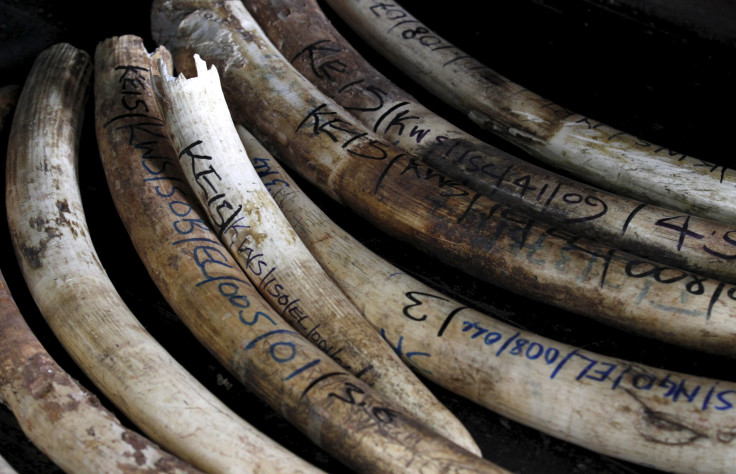Kenya's War On Poaching: Police Charged For Allegedly Selling Ivory In Nairobi West

Four Kenyan police officers were expected to be charged with illegal possession of ivory at a Nairobi court Tuesday, the government’s wildlife agency said in a statement. The junior officers, who belong to a special unit tasked with ministerial security, were arrested Monday night in a government-owned vehicle in Nairobi West while trying to sell 11 pounds of ivory valued at about $5,500.
A statement from the Kenya Wildlife Service obtained by International Business Times said the suspects are three bodyguards and a driver who are all members of the Security of Government Buildings Unit of Kenya’s Administration Police. They were identified as Cst. Peter Kuria Kimungi, Cst. Martin M. Marangu, Cpl. Francis K. Karanja and Cpl. Stephen Chege Ngawai. The four policemen were set to be arraigned in Kibera Court Tuesday morning, local time.
“Kenya Wildlife Service continues to work with the National Police Service and other security agencies in dealing firmly and without prejudice with cases of any government officials involved in illegal activities,” Kenya Wildlife Service spokesman Paul Udoto said in the statement Tuesday.
Kenya’s environment minister Judi Wakhungu said in late January that the East African country was winning the war on poaching. Anti-poaching measures put in place by the government over the past three years have seen the number of elephants killed decline from 384 cases reported in2012 to just 96 in 2015. When she took office in 2013, Wakhungu said, Kenya was one of the eight nations highly implicated in the illegal ivory trade.
“We are now on our way out of the gang of eight,” Wakhungu said in a recent interview with Kenyan newspaper Daily Nation.
However, corruption has enabled ivory trafficking in Kenya, with police, customs officials and judges taking bribes from criminal gangs. A five-year study of wildlife cases in Kenyan courts, which was conducted by conservation organization Wildlife Direct and published in 2014, revealed that just 7 percent of those convicted of offenses against elephants and rhinos were actually jailed, despite potential prison sentences of up to 10 years.
Kenya plans to burn some 120 tons of ivory at the Nairobi National Park in April, making it the largest ivory stockpile destroyed in any country so far. The event will be the culmination of a summit at the Mount Kenya Safari Club in Laikipia, which aims to develop an Africa-wide response to the illegal wildlife trade, according to Kenyan newspaper the Star.
More than 30,000 elephants are slaughtered for their lucrative ivory each year in Africa to meet a thriving demand in Asia, where raw tusks sell for around $1,100 per kilogram, according to Agence France-Presse.
© Copyright IBTimes 2025. All rights reserved.





















